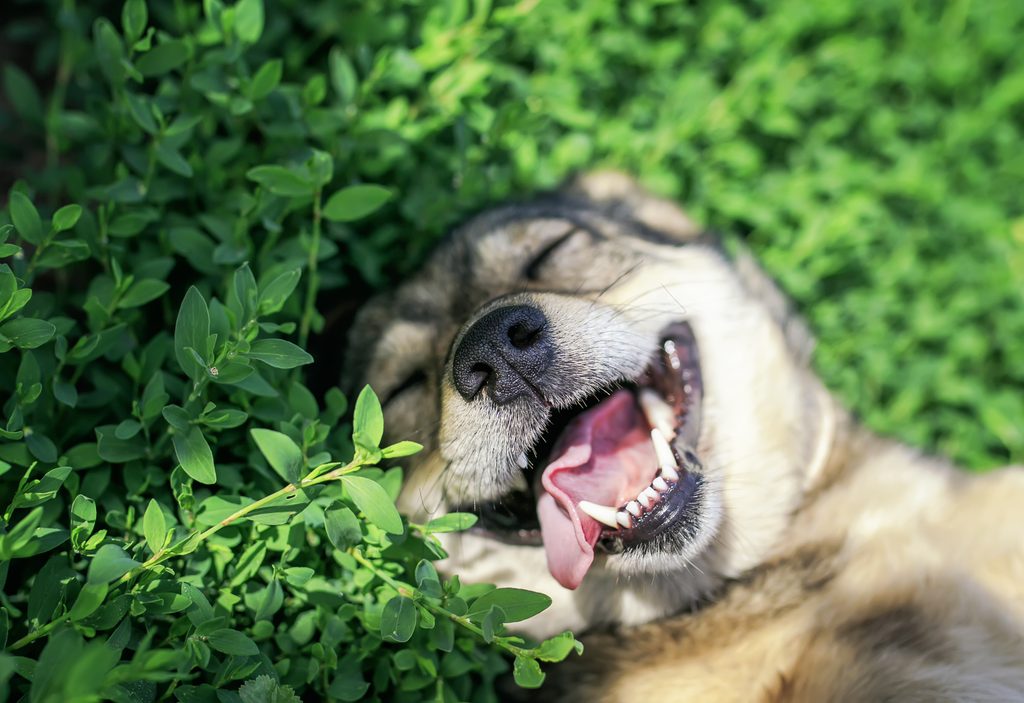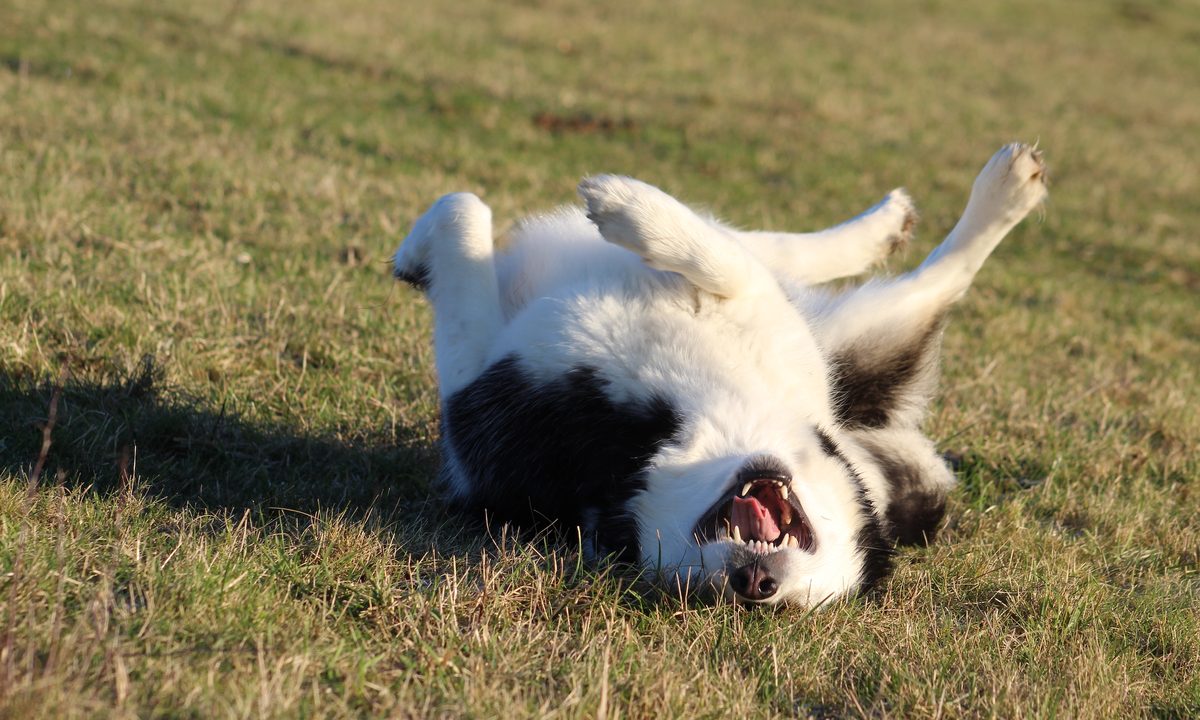We think all dog behavior is cute, but that doesn’t mean it’s all preferable. Some pups steal food and others roll in poop. Unfortunately, it makes sense from their perspective because they want to disguise their scent. But why do dogs roll in the grass? Well, like the prior example, it all comes down to smell, which in dogs is up to 100,000 times better than ours (you read that right). However, even knowing that, rolling in grass is a little more complicated than you might expect. We’ll walk you through all the reasons.
Is it normal for dogs to roll in the grass?

Don’t worry — your buddy joins the ranks of most pups that seem to love grass and its smell. Even so, you can decide to train them out of it when you have a good reason. For example, if they frequently roll in your yard and get stung by bees, you may want to curb the behavior (and they might stop on their own, too).
Otherwise, you can certainly decide that you don’t mind them getting grass stained every now and then, provided they stay relatively clean. On that note, all dogs should stay on flea repellant, which can be administered as a shot, topical liquid, or a pill.
Why do dogs roll in the grass?

The reasons are plentiful and seemingly contradictory. As with so many of their instincts, you might never get to the bottom of it. There could be a whole host of reasons why your dog rolls, and it can be a challenge to figure out which one has compelled them. Of course, other times, there’s just no reason at all, and Fido thinks it feels great and makes him happy. But think through each of these options to see if any resonate.
Masking
Back when our dogs had to hunt down every meal, they may have benefited from hiding that wolfy musk. Grass, dirt, and the aforementioned poop all work well at disguising them from prey, allowing our animals to sneak up on their dinner. While our pets mostly eat kibble these days, dogs still decide to incorporate some of nature’s smells into their coats. Feel free to give them a bath afterward if it’s really bad.
Marking
In the previous section, we described why a dog might disguise their odor, but here, we mean the opposite. Many pooches leave behind a small piece of themselves by marking their territory with pee — this is especially common with intact males, but all dogs might do it. Rolling in grass accomplishes a similar goal by spreading the scent from their coat to the surrounding areas.
Scratching
Occasionally, this has nothing to do with communication at all and everything to do with your animal’s own comfort. You may have the ability to reach around and scratch your own back, but your fur baby doesn’t. Some dogs decide to use grass, dirt, or carpet as a way to get those hard-to-reach itches. Give them a helping hand and deliver the scritches they crave to get them to pull back on this.
How to get your dog to stop rolling in grass (and when you should do that)

Grass is harmless, but feces isn’t. Dogs that roll in contaminated earth should be redirected since that could negatively impact both you and your four-legger. Specifically, pup pups can pick up bacteria, parasites (like worms), and even some viruses from other animals — both dogs and wildlife. Bad water or soil, too, can carry lepto, which is bad for dogs and you.
Any time you want to prevent an action from your beastie, you’ll need to redirect and reward. Start with a command that they understand. Some owners go with “stop” or “no,” but you can distract by making them come or sit as well. Anytime they cease the unwanted behavior, you should praise them copiously. Another great way to halt them in their tracks: Pull out a treat or toy. If you keep the fetch game going consistently, they won’t have time to get covered in grass.
Our dogs constantly perplex us with strange behaviors that only make sense to other canines. In the grand scheme of things, rolling in grass doesn’t have a huge negative impact, certainly less than other things could. While you definitely can prevent your pup, you don’t necessarily have to. If you know your yard is relatively safe, go ahead and allow your pet to get into the dirt. Afterward, wipe them down as needed and rest assured their perfectly content to smell like the outside.




